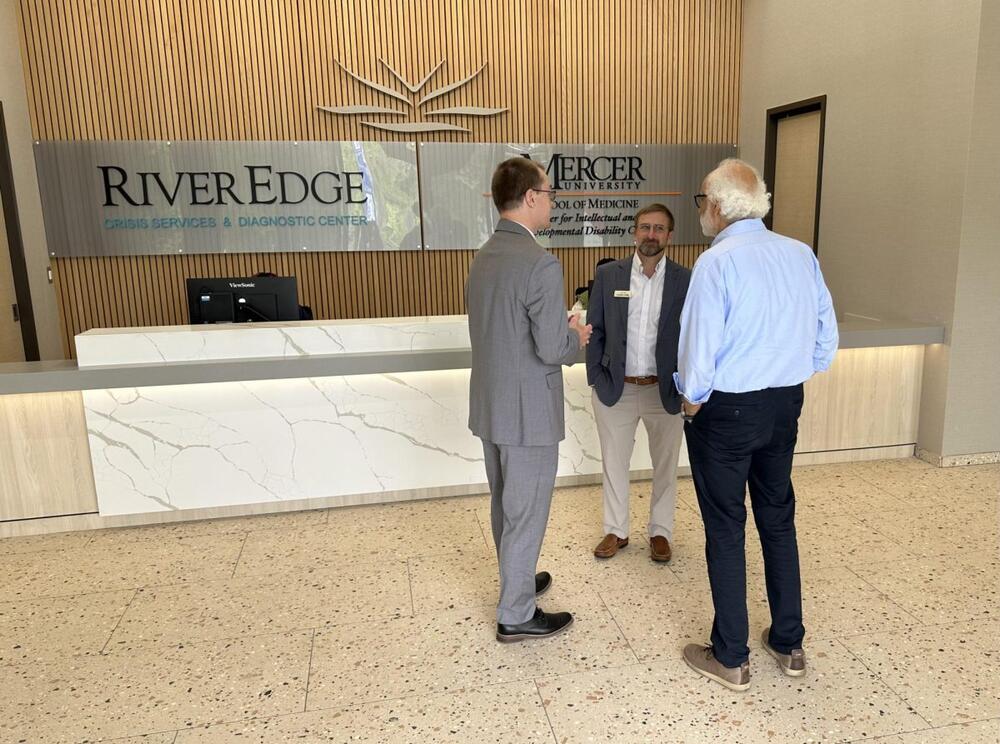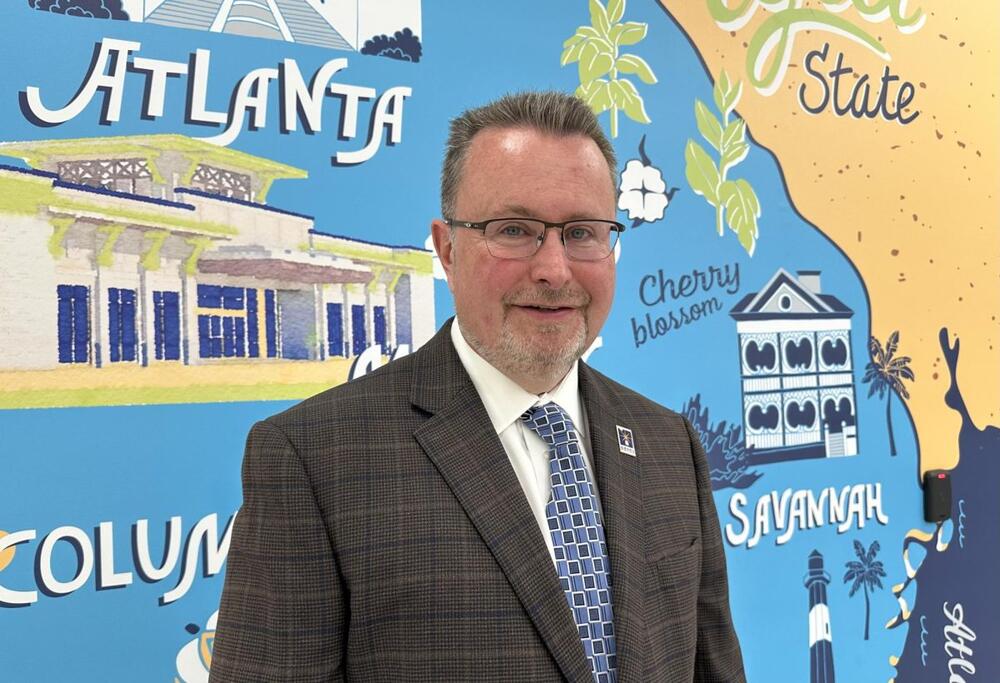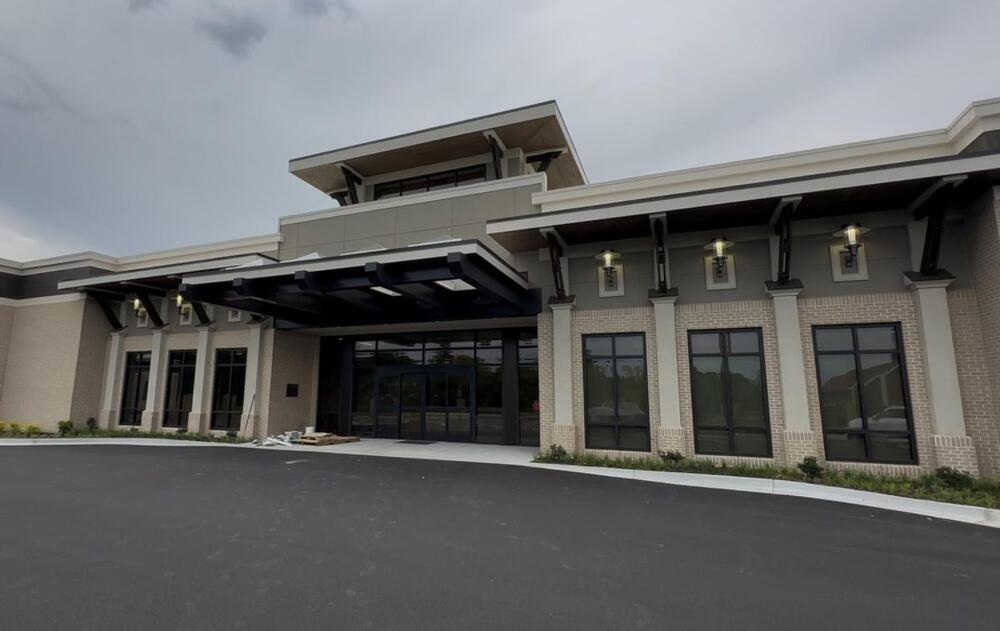
Caption
Parrish Construction Group’s Charlie Griffis (center) speaks with architect Kamal Azar (right) and another visitor Thursday at the new River Edge Crisis Services and Diagnostic Center and Mercer University School of Medicine’s Center for IDD Care.
Credit: Liz Fabian/The Macon Newsroom




